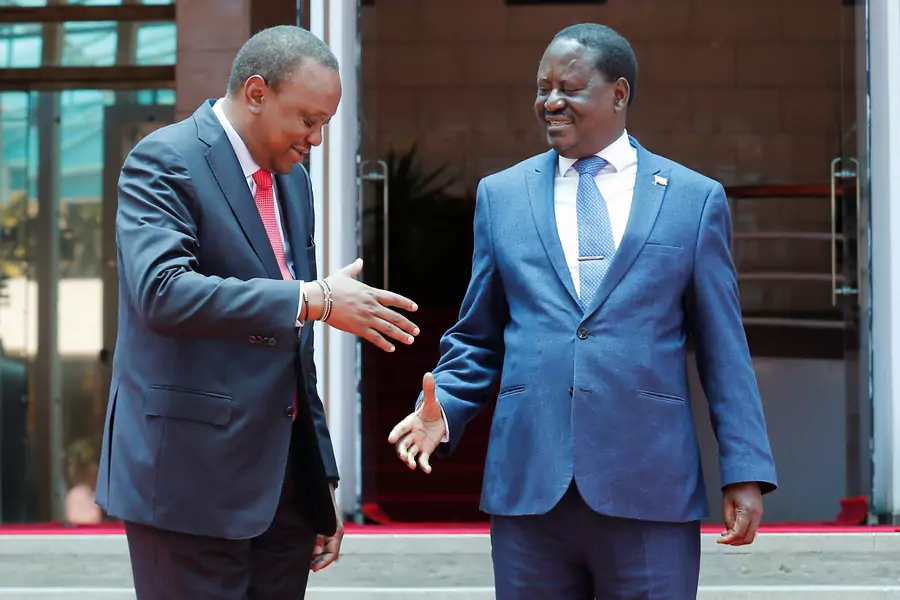Kenyatta and Odinga Call for Reconciliation in Kenya

In a joint press conference on March 9, President Uhuru Kenyatta and opposition leader Raila Odinga promised to begin the process of reconciliation following their bitter standoff around the 2017 elections that raised the specter of ethnic violence. Up to now, both had refused to participate in talks. In their appearance together, Kenyatta said, “We will begin a process of discussing what ails us and what creates division among us.” Odinga said it was "time to resolve our differences.”
If sincere, friends of Kenya will welcome Kenyatta and Odinga moving their country back from the brink.
More on:
It is not quite clear how to account for the reconciliation now. Odinga had himself inaugurated as the “people’s president” in opposition to Kenyatta’s formal inauguration as president, and he has denied the legitimacy of Kenyatta’s presidency. On the other hand, Kenyatta spokesmen have accused Odinga of treasonous behavior. While the ethnic differences the two personify have not gone away, it is possible that the two have agreed to a deal that would be personally advantageous to both of them, whether financially or politically.
The move has received mixed reactions, to say the least. Some have praised the two for their “show of statesmanship,” while Dr. Miguna Miguna, a leader in Odinga’s National Resistance Movement who was allegedly sent to Canada against his will, accused the opposition leader of “betrayal.”
The BBC raises the possibility that the reconciliation move is a public relations stunt related, somehow, to Secretary of State Rex Tillerson's visit to Kenya. Perhaps—he arrived shortly thereafter—though that seems far-fetched.
In any event, Kenya’s friends will be watching over the next several days to see if the political temperature cools.
More on:
 Online Store
Online Store